
the MAM: Primordial Greek Gods
RETURN TO MYTH ABOUT MYTHS PAGE
Primordial Gods were a group of deities who were considered some of the oldest in the entire pantheon. They took on the roles of massive overarching concepts and were often considered the creators of the universe and the world itself.
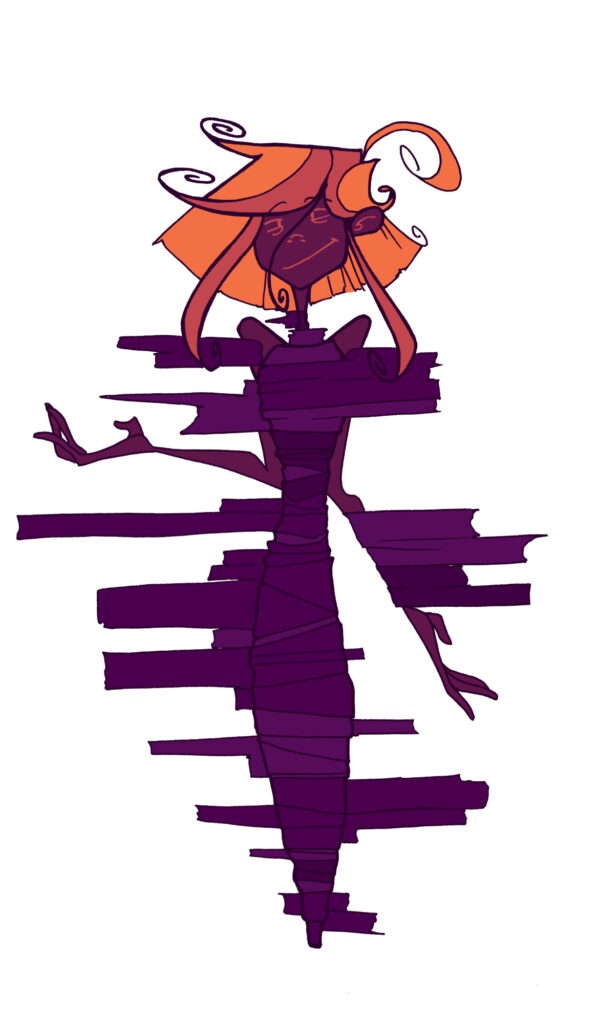
khaos
(KHAOS/CHAOS)
Was the primordial concept of complete and utter nothingness.
In some versions of the myth Khaos was nothing but the primordial void from which everything came to be. There was no proof as to what this Khaos looked like. Some describe it as a ‘void’ or a ‘gap’, a blackness in which things suddenly appeared. Some myth describe Khaos as being the very first deity to exist even before Gaia and was, in fact, the initial creator of Gaia, Tartaros and Eros. In other version Khaos gave birth to both Nyx and Erebos who were then the first deities, the personifications of night and absolute darkness.
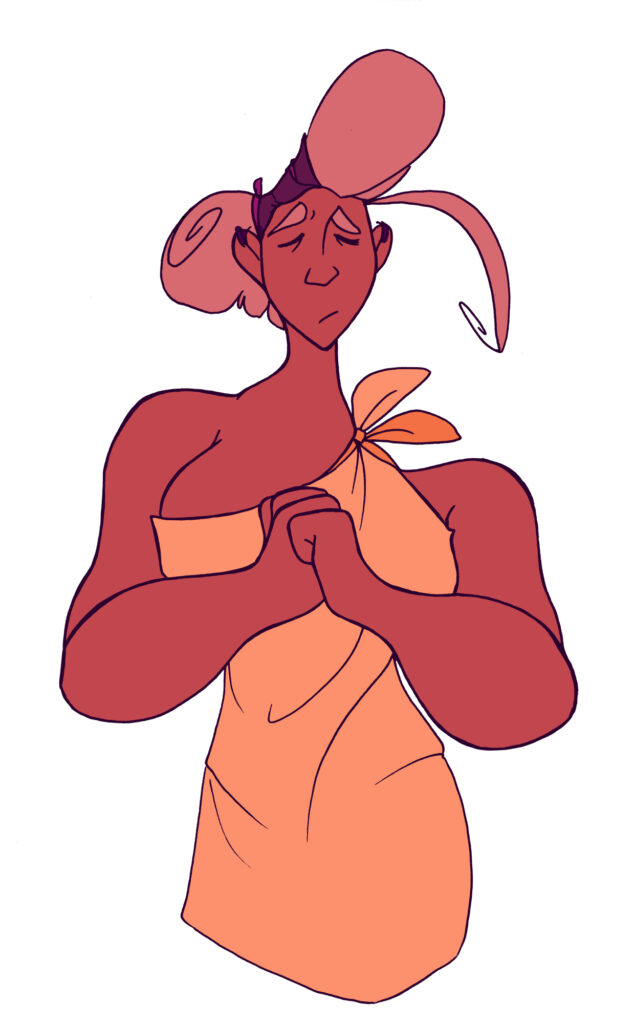
thesis
(THESIS/THETIS)
Primordial goddess of creation.
In some versions of the myth, Thesis was not mentioned all too frequently but when this primordial goddess did appear it was alongside Hydros and Physis (in other versions Physis is replaced by Gaia) in the initial creation of the Earth. Later in mythology (and time) Thesis was considered the female-side to the bi-gendered god of life, Phanes.
In another version Thesis was mentioned as (or alongside) Tethys or Metis which didn’t deviate too terribly from her original role at goddess of creation. Thesis was a rather quiet sort.
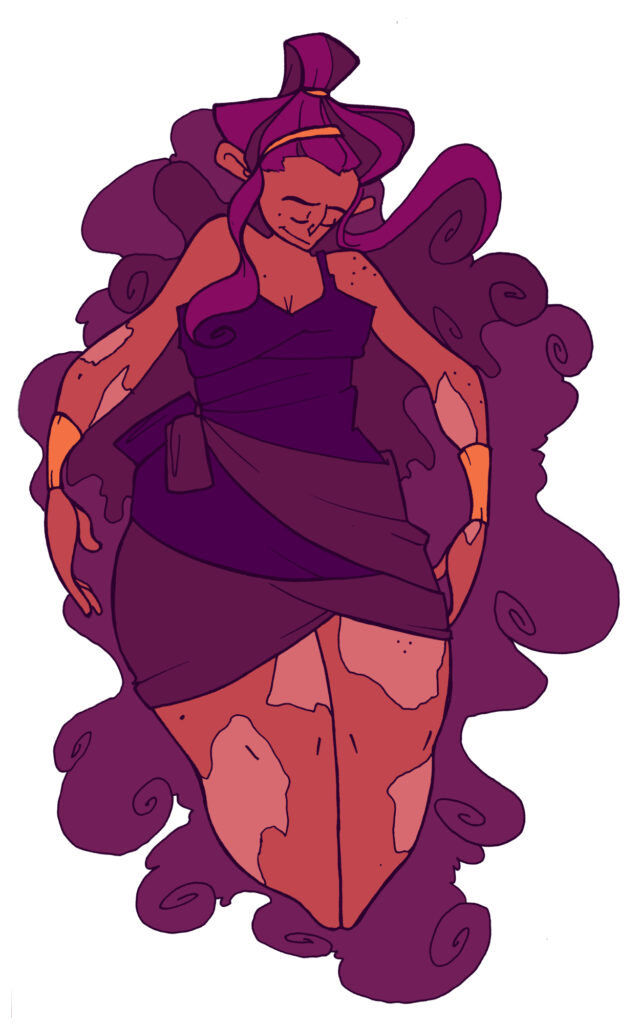
gaia
(GAIA/GAEA)
Goddess and personification of the Earth also known as Mother Earth.
In some versions of the myth she was the goddess who created everything in the beginning. Which meant she created Ouranos, and created various Titan children (who in turn paired off to create the Olympians). Gaia also asked one of her Titan children, Kronus, to castrate Ouranos because he was being clingy, hugging his wife and refusing to let her go (while his penis was still, inside her preventing the Titan’s birth). Kronus very excitedly leaped at the chance to do so, and with the help of a couple of his siblings he succeeded.
Gaia was then free to go on and sleep with other consorts in order to create more creatures to fill the Earth with.
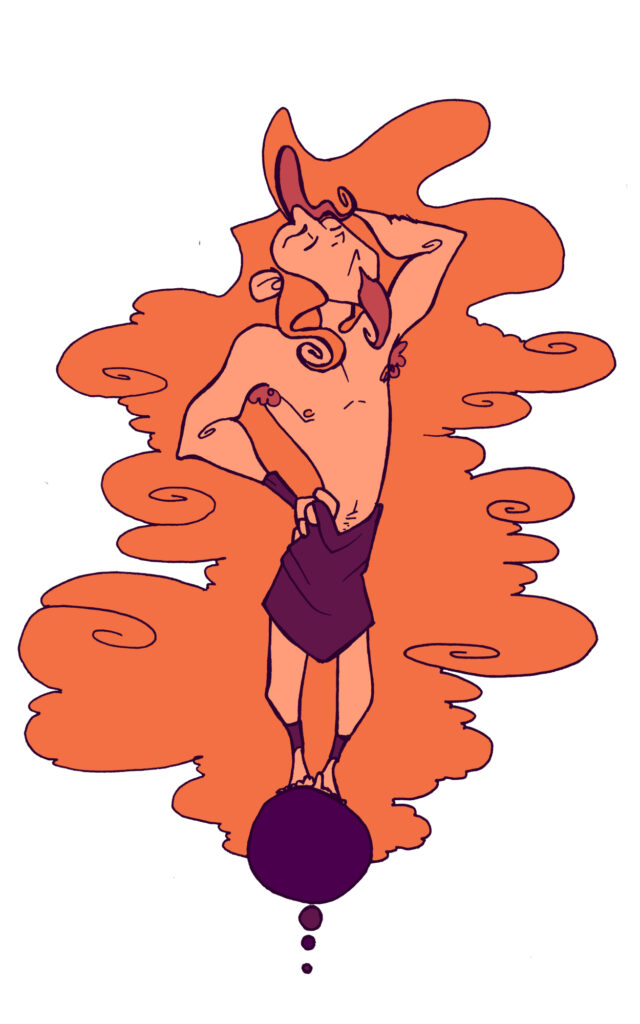
ouranos
(OURANOS/URANUS)
God of the heavens, also known as Father Sky.
In some versions of the myth, he was the first in the long line of horrible men. He was Gaia’s son, in some versions, in others he was also the son of Aether. He fell in lover with Gaia and made love to her, afterward, so enamoured by her he refused to pull himself out. Having fathered various Titans (and perhaps learning of one who would usurp him) he insisted on keeping them trapped inside their mother. Kronus, however took it upon himself, at his mother’s request, to cut of Ouranos’ penis.
Even more ridiculous was that Ouranos’ penis went tumbling into the ocean and from the foam of the collishion birthed Aphrodite. The blood from the castration created three giants, nymphs, ash trees, the furties and the erinyes (spirits of violence and vengeance).
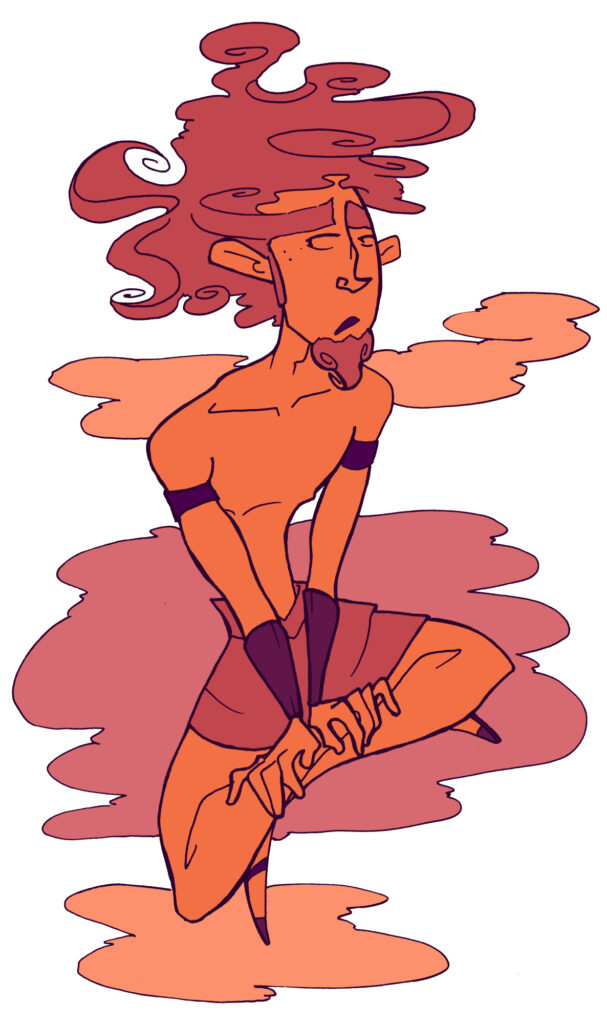
aether
(AETHER/AITHER)
Primordial god of the atmosphere and light.
In some versions of the myth Aether was considered not simply air. He was the primordial god of the pure upper atmosphere, air in which only the Gods could breathe. His parents were often considered: Nyx and Erebos which was rather interesting as both those two primordial entities represented a form of darkness.
In a wildly different version of the myth, it was said that Aether was actually the brother to Erebos and Khaos and created by Khronos (myth’s version of Father Time).
It was said that in antiquity Aether was possibly known to have various shrines though no temples which suggested he had very little following among mortals.
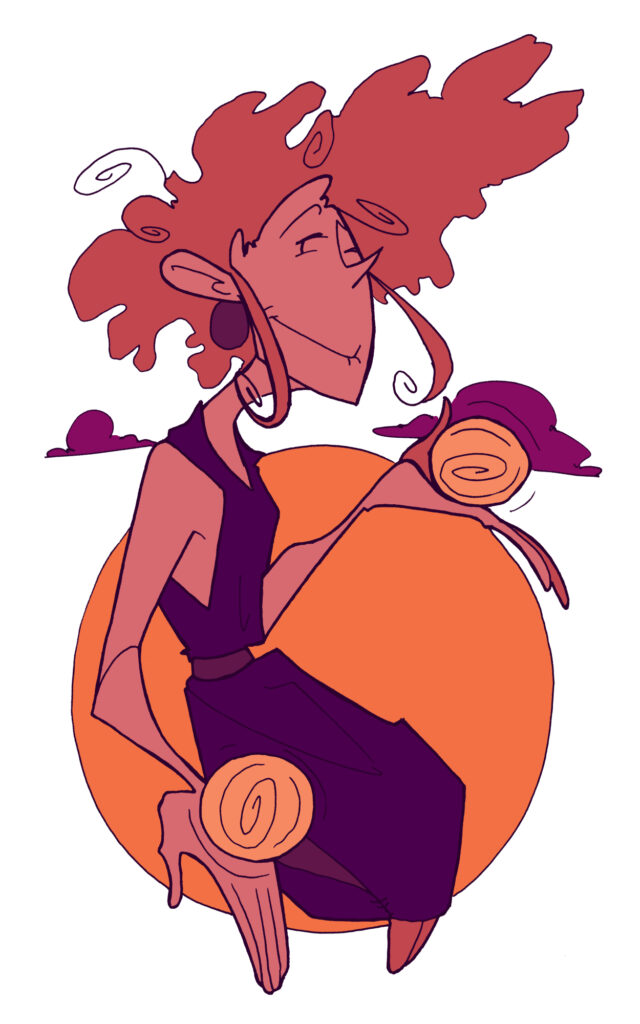
hemera
(HEMERA)
Primordial goddess of the day.
In some versions of the myth Hemera followed a rather confusing lineage (as did most primordial gods due to the fact that they were the very origin in which the world was created). In some instances, Hemera was the sister and consort to Aether, in others she was the sister to Nyx and born from Khaos. In other versions she was the daughter of Erebos and Nyx which followed the same irony as Aether being born from the two primordial gods of a very dark nature.
Hemera was also a goddess often confused with Eos (titaness of the dawn).
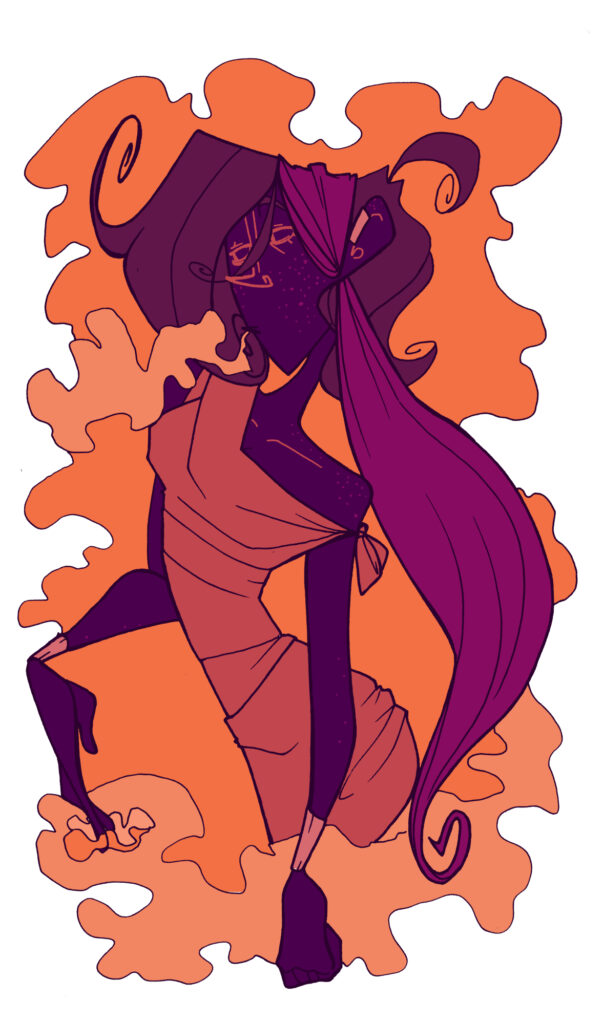
nyx
(NYX)
Goddess of the night.
In some versions of the myth she was not only the mother to various terrifying children, with maybe a few good ones in between, including: Moros (doom, destiny), the Keres (destruction, death), Thanatos (death), Hypnos (sleep), the Oneiroi (dreams), Momos (blame), Oizys (pain, distress), the Hesperides, the Morai (fates), Nemesis (retribution), Apate (deceit), Philotes (friendship), Geras (old age) and Eris (strife). She was also known to have created these children in particular of her own volition, without the inclusion of a partner.
While Erebos was considered her partner (and fathered some other children with her) for the most part, Nyx was definitely the dominant force, often considered scarily beautiful and absolutely terrifying. She was such a daunting figure she even struck fear into the king of the gods himself, Zeus.
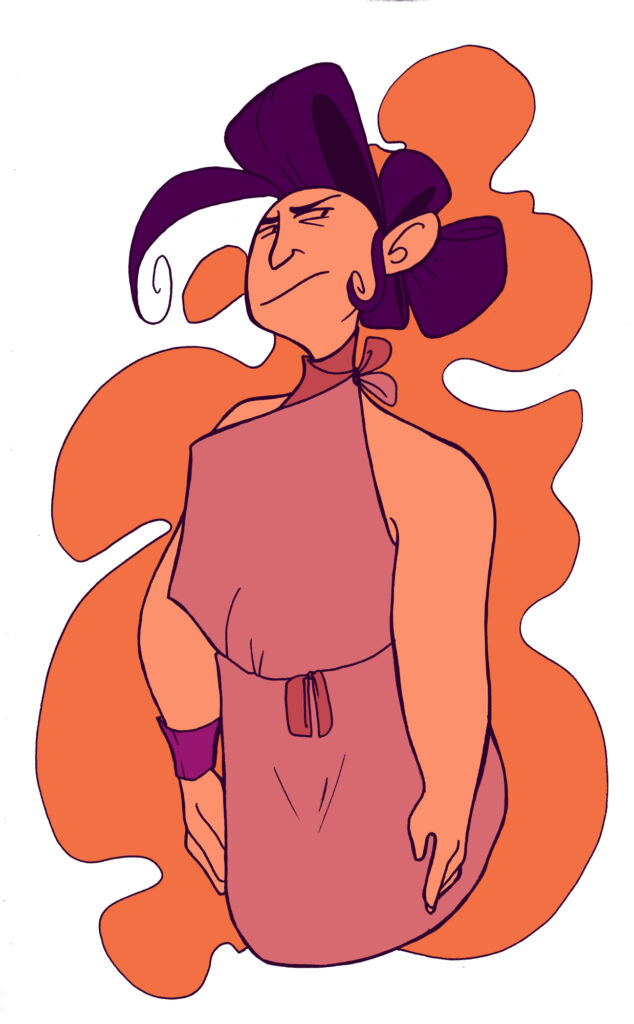
harmonia
(HARMONIA)
Primordial goddess of harmony and concord.
In some versions of the myth, Harmonia was very often considered the sister to Eris who would have been born of Nyx but Harmonia, somehow, was often considered the daughter of Zeus regardless.
This confusion aside, Harmonia did play a rather significant role in the myth of the hero, Kadmos as his wife. Ironically, their end was not met so much with Harmony, but a great deal of sadness and grief. After becoming the king of the Illyrians Kadmos was transformed into a snake. In her grief, Harmonia stripped naked and beckoned him to her. Laying dazed and entwined in a pool of wine the rest of the pantheon decided it would be best to reunite her with her love, turning her into a snake as well.
Harmonia was also known for a necklace she was given by the gods on her wedding day. This necklace was known to give the wearer immense misfortune.
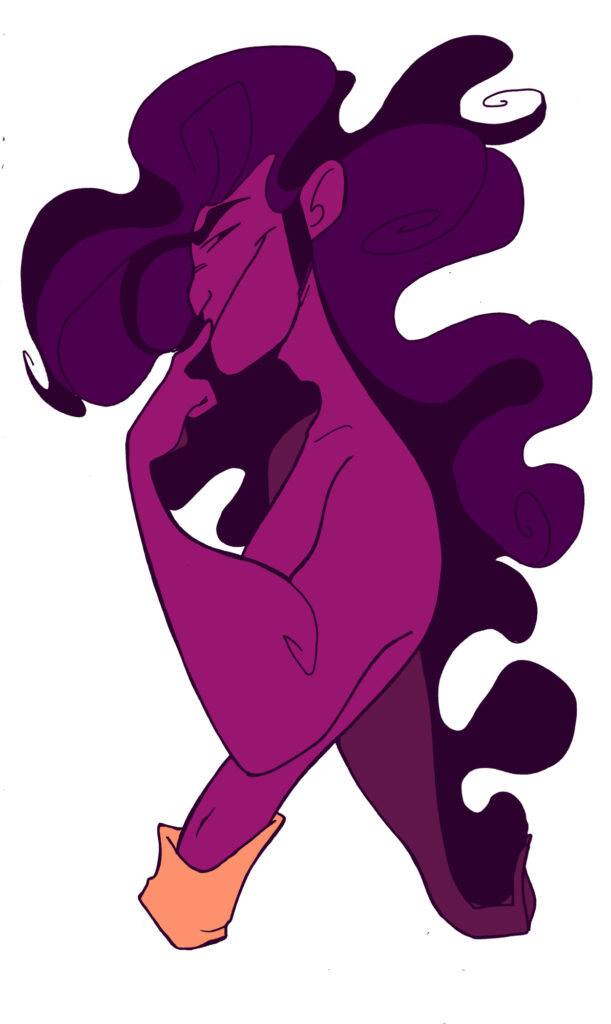
DOLOS
(DOLOS/DOLUS)
Primordial god of trickery and guile.
In some versions of the myth, he was known as a master at cunning deception, craftiness and treachery. These titles were primarily given to him for making a fake copy of the Veritas (a statue of Aletheia, or, truth) in order to trick people into thinking they were seeing the real one. Creating a fake of a statue representing ‘truth’ was a trick so cunning it impressed his master, Prometheus, creator of mankind from clay itself. The resemblance of the two statues was so nearly exact, despite Dolos having run out of clay to make the feet, his master appointed him the god of trickery.

eris
(ERIS)
Primordial goddess of chaos, strife and discord.
In some versions of the myth, Eris was sometimes known for being two entities, one version of her blame-worthy in the more immediate inflictions upon men; the other was a goddess, seated in the aether whose unrest created opportunity for mankind.
Eris was best known in her element; as being the goddess who triumphantly lead the Typhon into the ten-year war between the Titans and the Olympians (the Titanomachy).
In all great wars; Eris was also present in Troy, responsible for the Judgement of Paris in which she was not invited to the celebration between gods and, in her frustration, showed up all the same, bringing with her an apple inscribed that it should be eaten by the ‘fairest one’. Needless to say this caused great troubles among the gods and split them between Trojan and Greek warriors.
Her children were minor deities covering smaller concepts under the same umbrella: Ponos (hardship), Lethe (forgetfulness), Limos (starvation), Algea (pains), Hysminai (battle), Makhai (war), Phonoi (murder), Androktasiai (manslaughter), Neikea (quarrels), Pseudo-Logoi (lies), Amphillogiai (disputes), Dysnomia (anarchy), Ate (ruin) and Horkos (oath).
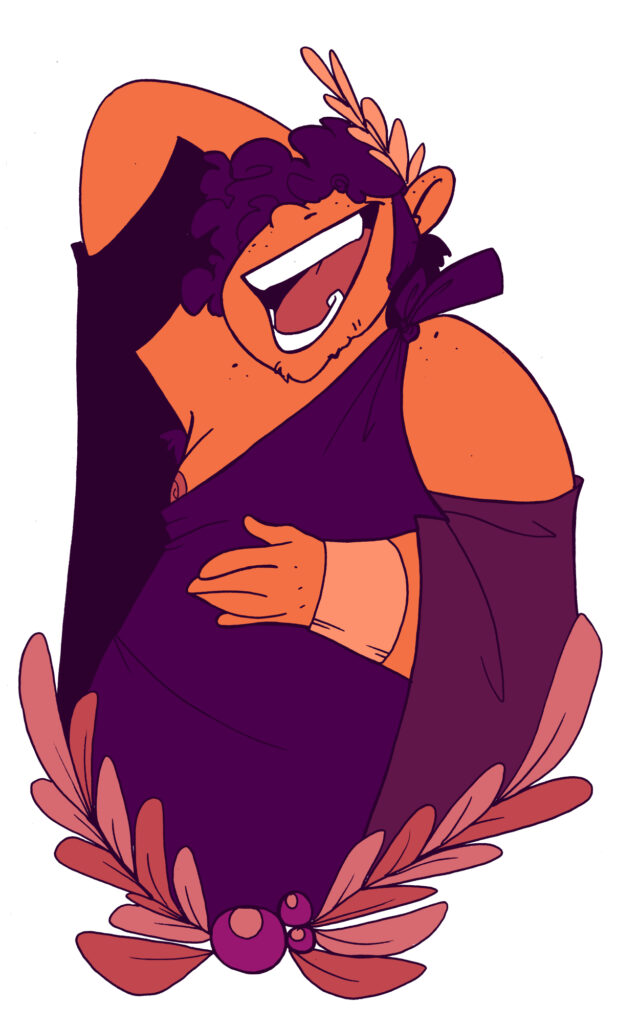
momos
(MOMOS/MOMUS)
Primordial god of satire, mockery and poets.
In some versions of the myth, it was said he was twins with the goddess of misery Oizys. He was the sort of concept who was transformed greatly over the years due to the concepts he represented. While this primordial god did not appear to star in any significant role in mythology, he was mentioned among lists of primordial gods and deities of his kind.
In some later versions of mythology, Momos was the source of blame for the initiation of the Trojan war (much in a similar fashion to Eris). His suggestion was a war to eliminate great numbers of mortals due to the fact that they would reproduce so quickly and the gods were worried about their numbers being large enough to usurp them.
Momos also featured in several of Aesop’s Fables as a god of judgement for a rather ridiculous scenario involving a man, a house and a bull.
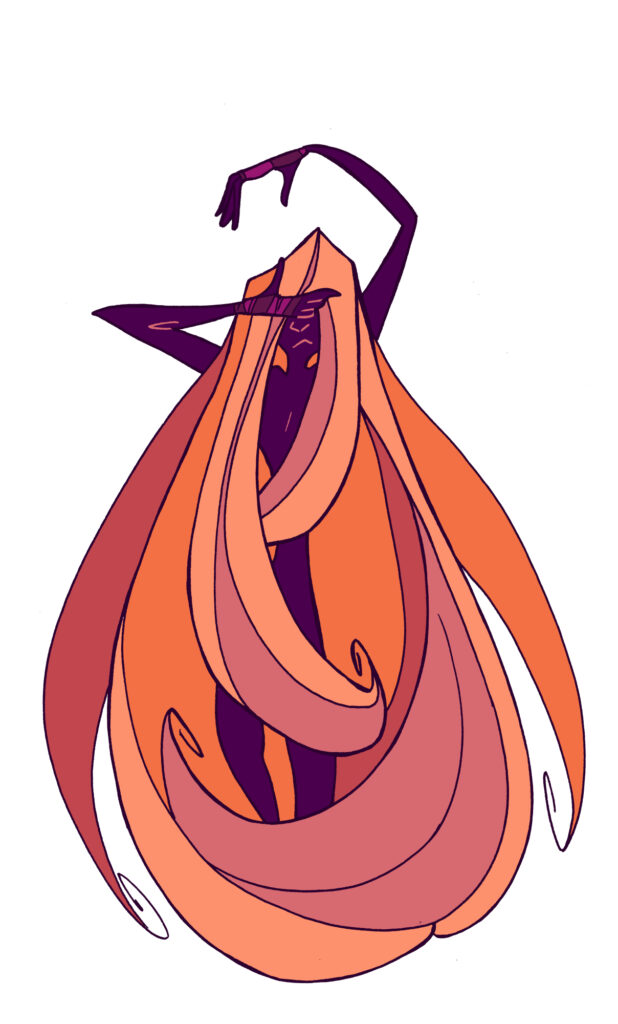
oizys
(OIZYS)
Primordial goddess of misery, anxiety grief and depression.
In some versions of the myth, she was only mentioned very briefly, but the fact that she was mentioned at all, was rather peculiar and important. In the midst of gods and goddess performing rather ridiculous scenarios it was interesting to note that mental illness and really strong feelings were given the importance of representation as a deity figure (and a primordial deity figure at that) rather than as a minor deity, demigod, spirit or daimon.
It was only rather unfortunate that Oizys was only really mentioned in lists of names dropped about primordial deities. She kept to her own devices and didn’t play into the dramatics of the rest of the gods both primordial and olympian.
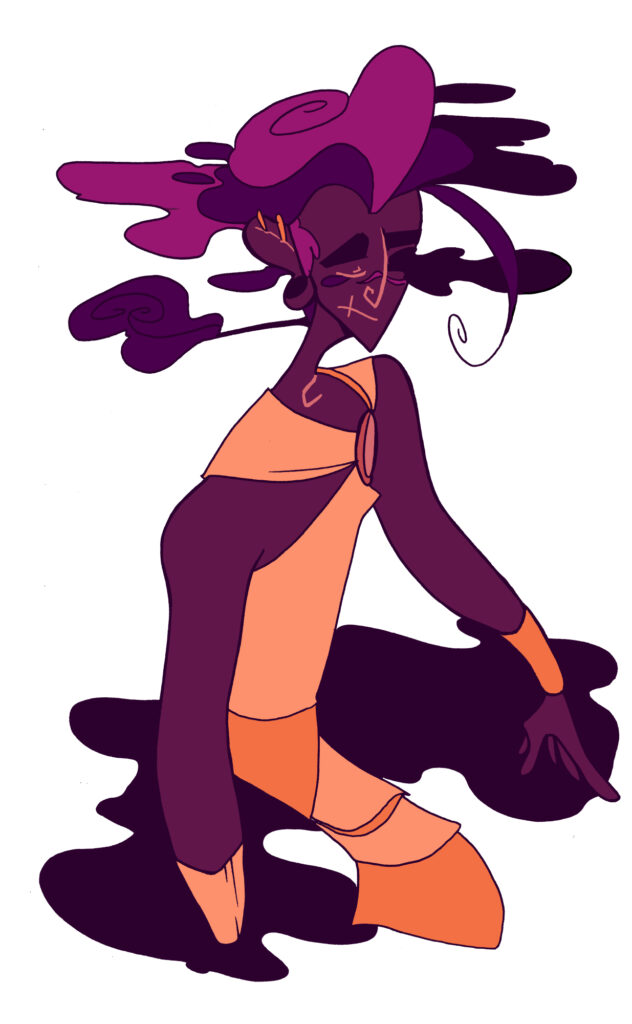
morpheus
(MORPHEUS)
Primordial god of dreams.
In some versions of the myth, Morpheus was a deity with a rather interesting ability. While his true form was that of a winged daimon, he often appeared to mortals in their dreams in the shape of a human. Often Morpheus typically appeared to kings and his appearance in dreams was very often a warning. Occasionally, Morpheus would appear in the dreams of benevolent kings as a sign of goodwill and pride of their ruling.
Most often individuals date Morpheus back to Roman Mythology and while Morpheus did play much larger roles in later myth, he was mentioned as a dream spirit in much earlier Greek Mythology. On occasion this spirit was nameless, un later years this spirit grew to be equated to a similar concept as that of Morpheus and soon adopted the name.
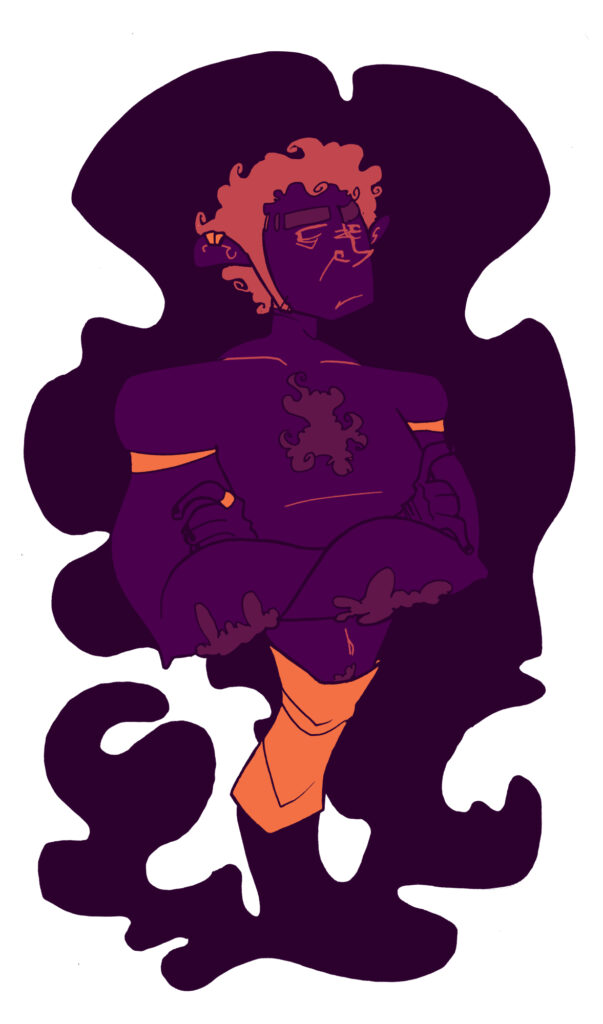
erebos
(EREBOS/EREBUS)
Primordial god of darkness, shadow and the darkness of the Underworld.
In some versions of the myth he was considered an entity who created children with Nyx that personified very dark concepts or their duality: light concepts. Oftentimes he was considered one of the first born from Khaos and not only represented darkness but a darkness so potent he was often considered the darkness of the Underworld.
Despite this very dour look on Erebos, he was a relatively harmless god. He spent most of his time in the Underworld, most specifically Tartaros. It was such that the two were often mistaken for one another.
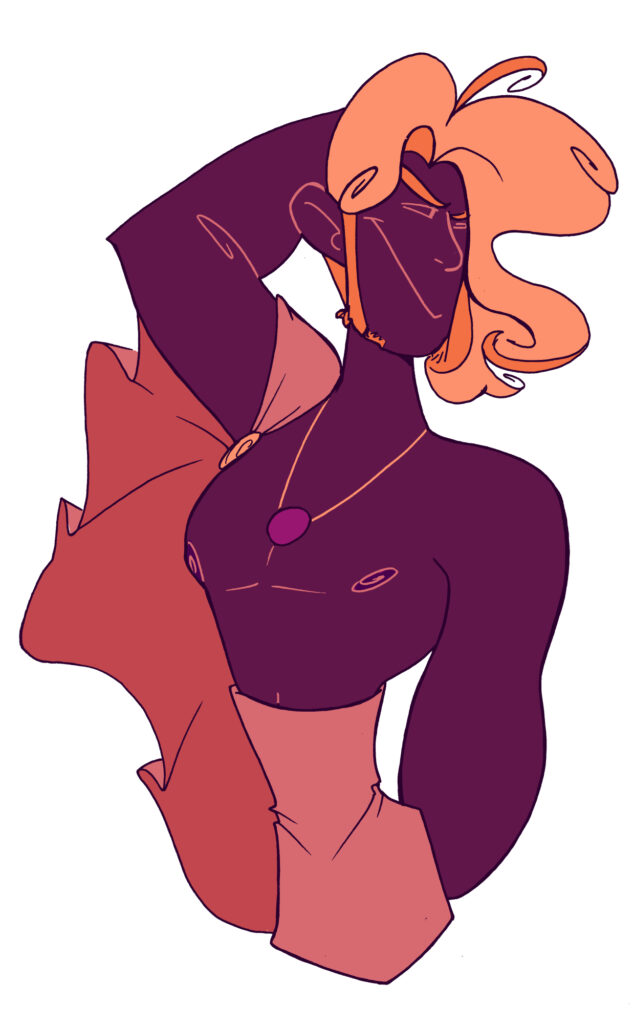
phobos
(PHOBOS/PHOBUS)
Primordial god of panic fear and flight.
In some versions of the myth, Phobos was well known for going into battle with his brother, Deimos as well as the god of war, Ares and his wife Enyo (occasionally accompanied by Eris as well). With such a team it stood to chance that a great deal would come to be destroyed. He was said to be the son of Aphrodite and Ares.
Although Phobos was a rather terrifying deity he wasn’t all that difficult to figure out how to please. It was said that in order to appeal to the god of fear seven warriors slaughtered a bull over a black shield, touched its insides while screaming/chanting an oath in his honour. In another instance Kyknos (Ares’ son) beheaded strangers and built a shrine in Phobos’ honour.
It was also stated that since Phobos was the son of Aphrodite he was also the god of the fear of loss.
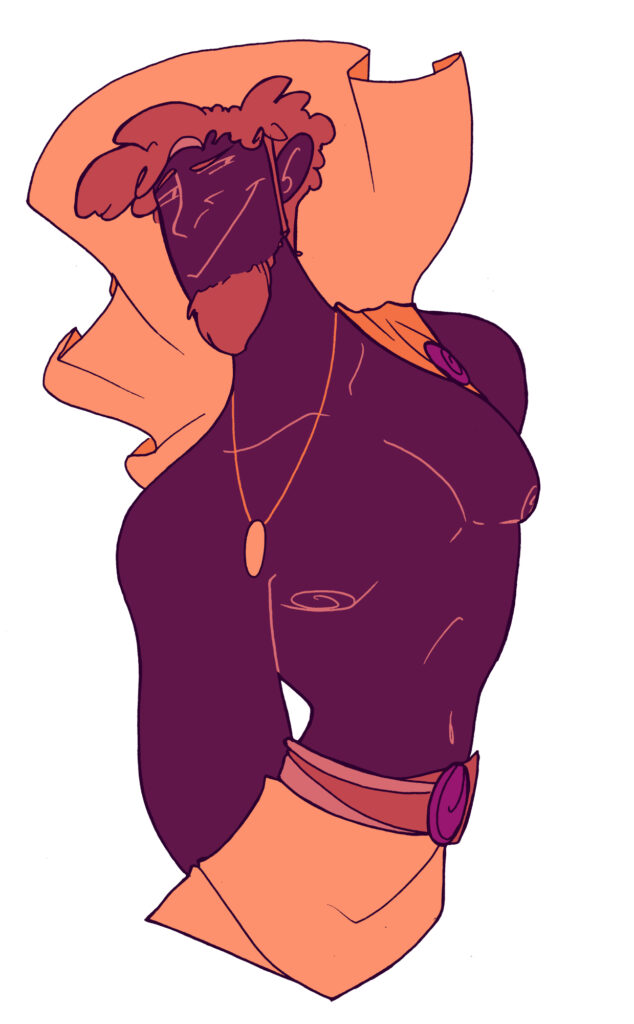
deimos
(DEIMOS/DEIMUS)
Primordial god of terror.
In some versions of the myth, Deimos was thought to represent the fear and terror that was brought on by war. He was more of an entity than a god, and fell into a representation of a concept very similarly to the rest of the primordial gods. While some versions hinted Deimos (and his brother Phobos) might be the sons of Nyx, others mentioned that he and his brother, Phobos were sons of Ares and Aphrodite.
Deimos had his hands in everything along with Phobos and often helped his parents in times of war to create even more chaos. It was rather unsurprising that both Deimos and Phobos were worshipped primarily in Sparta.
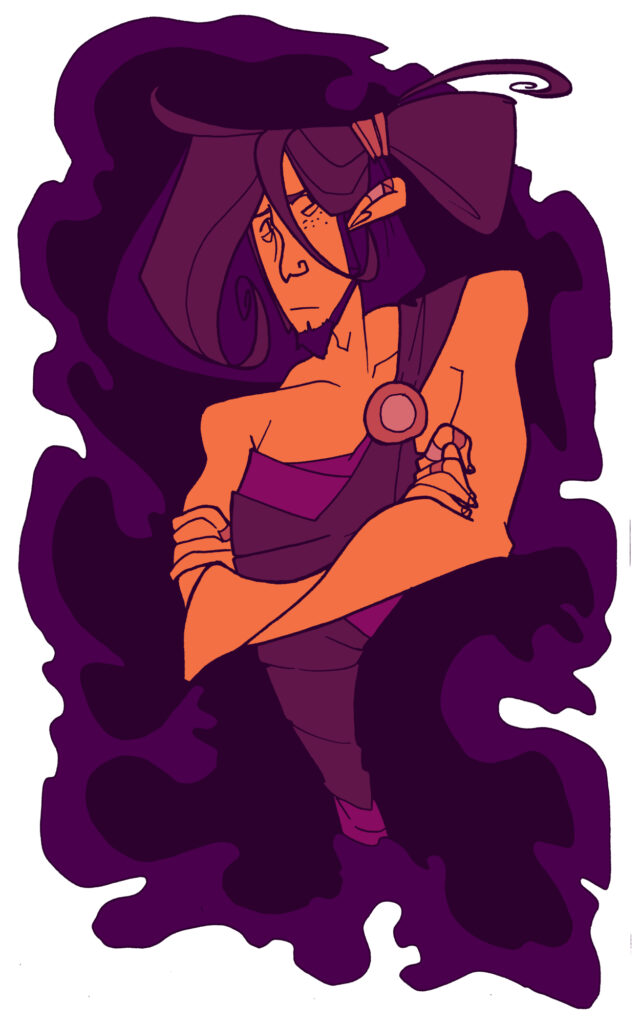
tartaros
(TARTAROS/TARTARUS)
Primordial god of the worst part of the Underworld.
In some versions of the myth Tartaros was not only considered as the horrible chasm in the Underworld that housed all the Titans as well as the poor fools who were damned for eternal suffering… but he was ALSO the primordial god responsible for creating the Typhon, a powerful beast created to vanquish Zeus so that primordial gods could regain their rightful place upon Olympus.
Although, Tartaros did create this creature with Gaia, his own sister, it was really not all that uncommon in ancient mythology for gods to copulate with their own family.
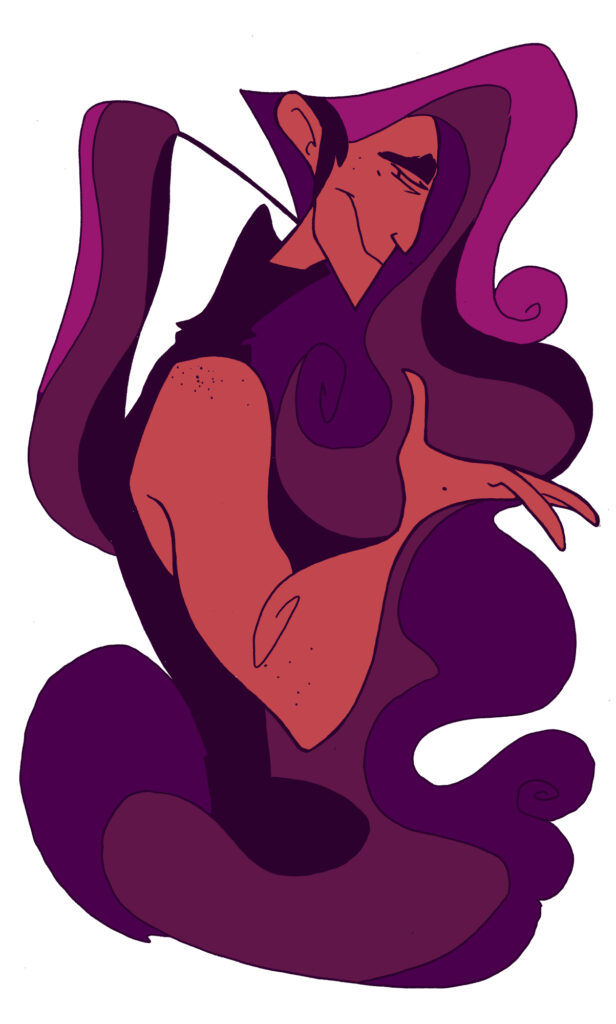
moros
(MOROS/MORUS/OLETHROS/OLETHRUS)
Primordial god of impending doom.
In some versions of the myth, Moros was considered to be absolutely terrifying and one of the few deities that even Zeus himself was afraid of. In one instance, Zeus had certain decrees and oaths made and attempted to overshadow one of these which caused a rage in Moros. Zeus, afraid of this rage, rescinded the elimination of one of his decrees. It wasn’t particularly specified what this controversial decree may have been.
Moros was considered omniscient, omnipotent and omnipresent which meant that he was always watching and always waiting which ideally played well into his hands.
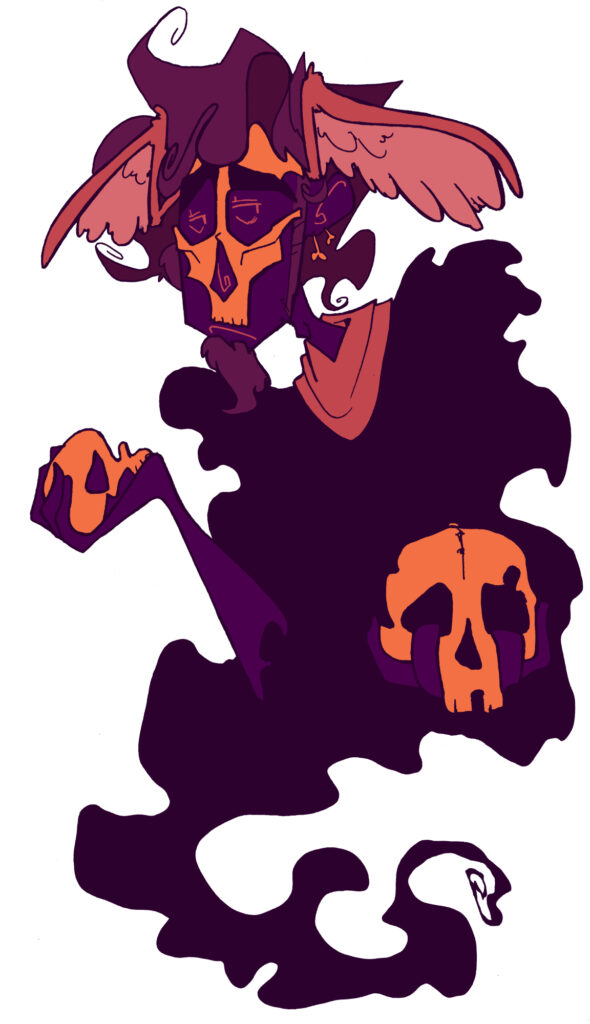
thanatos
(THANATOS)
God and personification of death. Brother of Hypnos.
In some versions of the myth he was very often referred to, but very rarely, the star of his own mythical story. He was, in essence, the Ancient Greek equivalent to a grim reaper. Thanatos hated everyone, both Gods and mortals, as much as they hated him. Unfortunately for him, Thanatos was also very easy to trick and was tricked by both Korinth and Sisyphos. The latter managed to confuse Thanatos, asking the death god how the shackles of his prison worked, using this opportunity to have Thanatos shackle himself. With Thanatos shackled, it saved very many individuals from dying, as he couldn’t do his job. It wasn’t until Ares’ great frustration at his kills not actually killing people that he investigated the source and found Thanatos shackled. The death god was freed by the god of war.

hypnos
(HYPNOS)
God and personification of sleep. Brother of Thanatos.
In some versions of the myth he was much more well known than his brother. It was said he lived in a cave where night and day met and the river Lethe (forgetfulness) passed through. He was known for growing poppies along with many hypnotic plants that induced sleep. It was also known that he was not too troublesome of a god, owning half of every mortal’s life.
Apparently, Hypnos was also known to turn the tides in some rather important instances. One of these happened in which he simply put Zeus to sleep at the request of Hera in the hopes of keeping him out of trouble and prevent him from sleeping with other women. The instances in which Zeus found out, Hypnos ran to his mother, Nyx who was capable of scaring the anger out of Zeus.
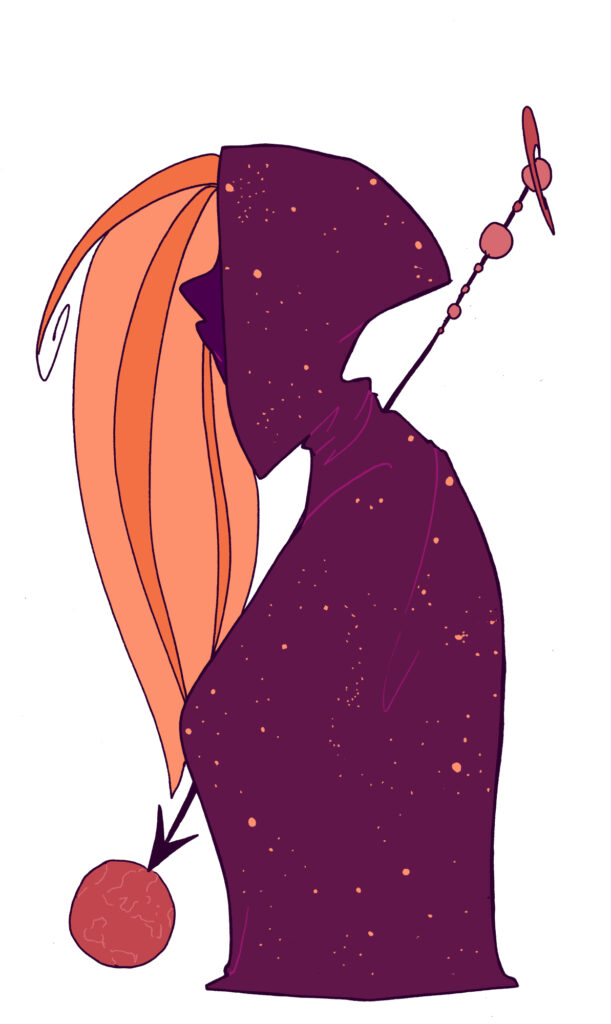
ourania
(OURANIA/OURANIE/URANIA)
Primordial goddess of astronomy and astronomical writings.
In some versions of the myth, Ourania was considered the representation of ‘the heavens’ and was often dressed in a cloak embroidered with stars. She was typically depicted with a celestial globe and a staff she pointed to this globe with. Ourania was capable of foretelling the future via the stars.
In the same image, Ourania was also considered one of the nine muses and was later placed in the family tree as the daughter of Zeus and Mnemosyne. While this diminished her status as a primordial god, the muses were nine very respected women in mythology which wasn’t too terrible of a transition for her character.
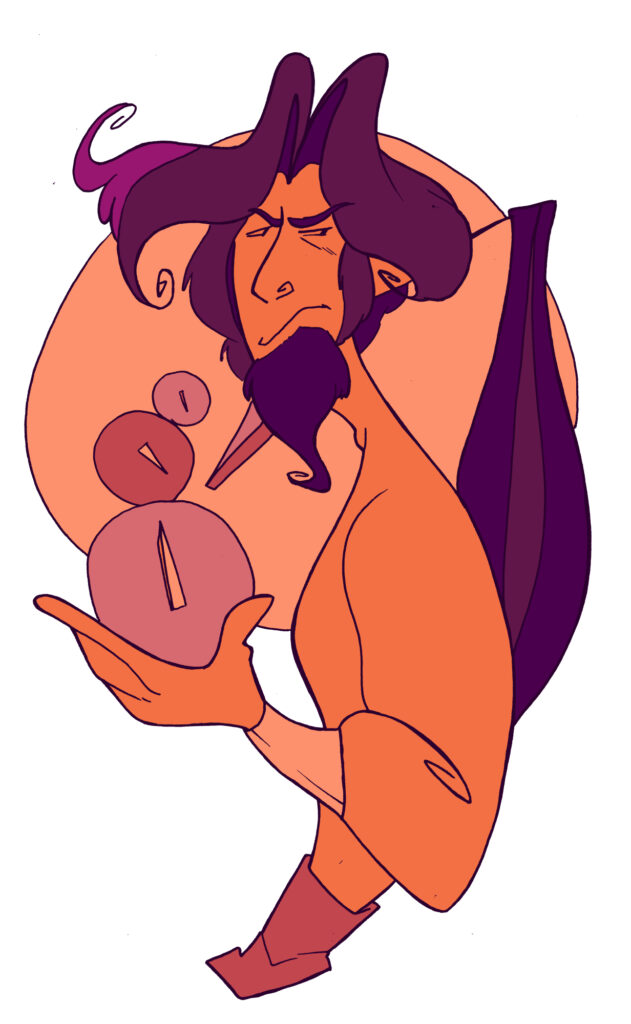
aion
(AION)
Primordial god of eternal time.
In some versions of the myth, the ancient Greeks had rather two main concepts surrounding the idea of ‘time’. The first being Aion, the personification of a nebulous eternity. Time was seen as an ambiguous ethereal concept in the shape of an orb surrounding the Earth and the sky. In contrast, Khronos was considered ‘time’ in three segments: past, present and future.
Although the distinction between the two was quite evident in their descriptions, very often in later mythology the two entities were fused into the same character, their names interchanged on several occasions.
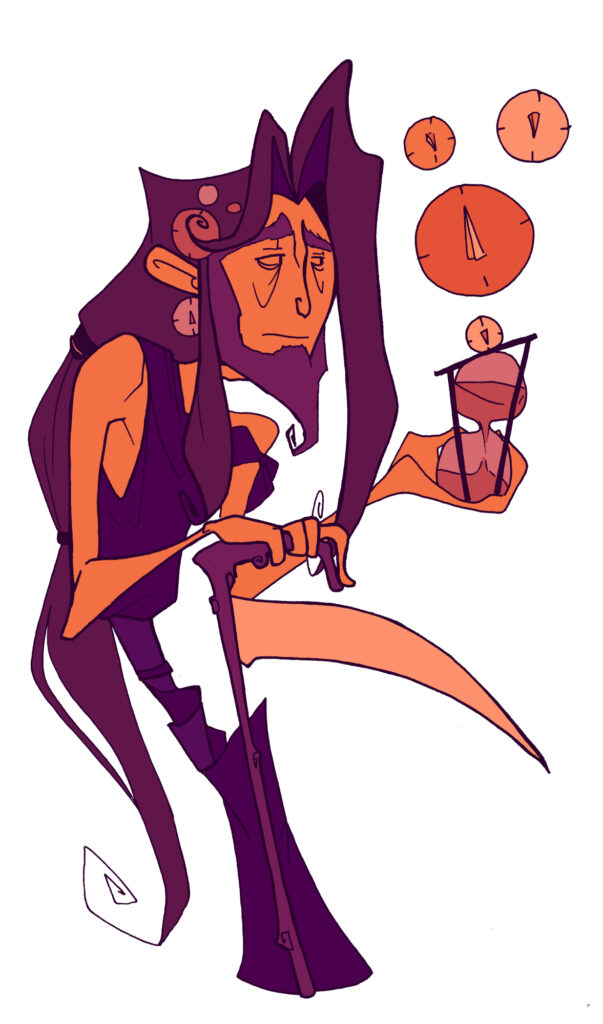
khronos
(CHRONOS/KRONOS/MYLINUS)
Primordial god of segmented time.
In some versions of the myth Khronos was considered the equivalent to current society’s concept of ‘Father Time’. This particular deity was often confused with several other entities representing similar concepts such as Aion’s concept of time as nebulous and constantly moving, versus Khronos’ segmented time (past, present, future). This particular god was also confused with the titan, Kronus as their names sounded very similar though both were even more clearly very separate entities.
One of the strangest myths of Khronos and Ananke were both created via Khaos. The two resembled massive snakes that which coiled around a cosmic egg which birthed Phanes, a bi-gendered god who became the creator of all gods thereafter.
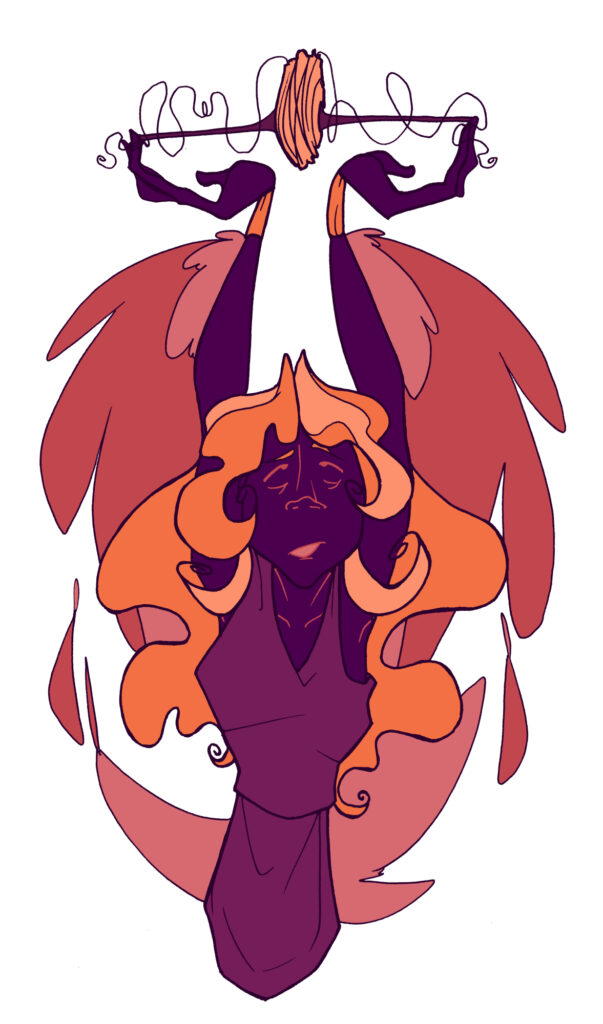
ananke
(ANANKE/ANANGKE/ANANCE/ANAGKE)
Primordial goddess of inevitability, compulsion and necessity.
In some versions of the myth she was both the daughter and consort to Khronos and was considered the most powerful dictator of fate and circumstance. Ananke was often depicted as holding a spindle and was very well revered by both gods and mortals.
Mortals often built shrines in her name alongside Bia’s and was often very oddly confused or interchanged with both Ourania and Aphrodite.
The oddest myth involving her makes her quite primordial in nature in which she plays the part of Khronos’ husband in the myth of creation. She and Khronos embody snake bodies to produce an egg which would hatch and become Phanes, who would then create the rest of god-kind.
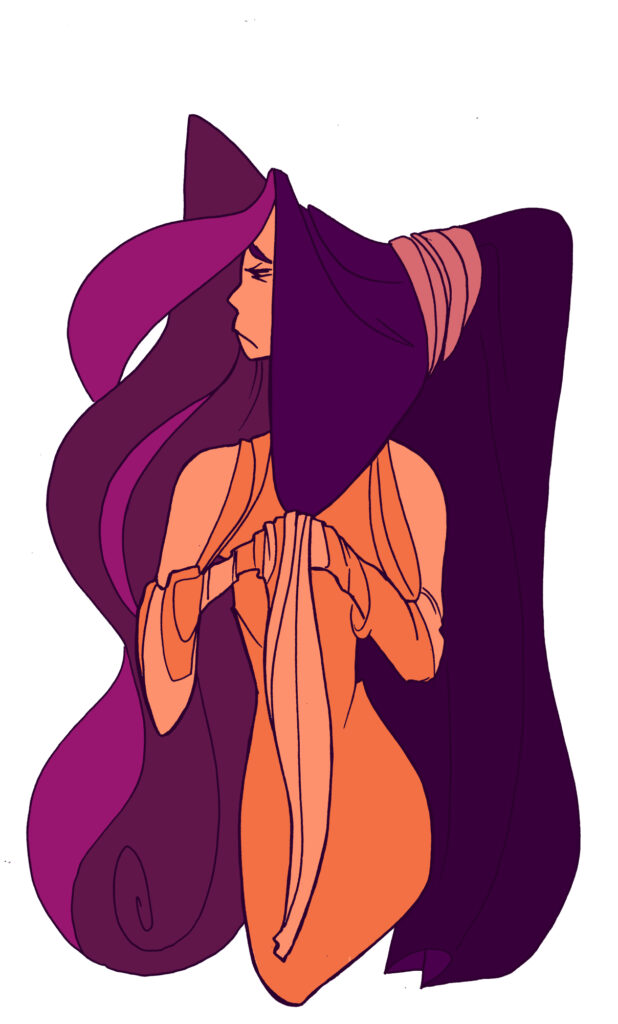
eleos
(ELEOS)
Primordial goddess of pity, mercy, clemency and compassion.
In some versions of the myth, Eleos was often depicted wearing a blue veil or dress. She was a very morose character, often pretty shy and weak and just overall sad. It was said she was also rather upset that she had such a great following in ancient Athens. This made it a little difficult for supporters to approach this goddess in particular. Regardless, she had an altar praised in her name that was visited by the big name heroes like Herakles and Adrastus.
Her supporters were a little odd and seemed only to reside in Athens and they honoured her at the altar by cutting their hair and undressing themselves.
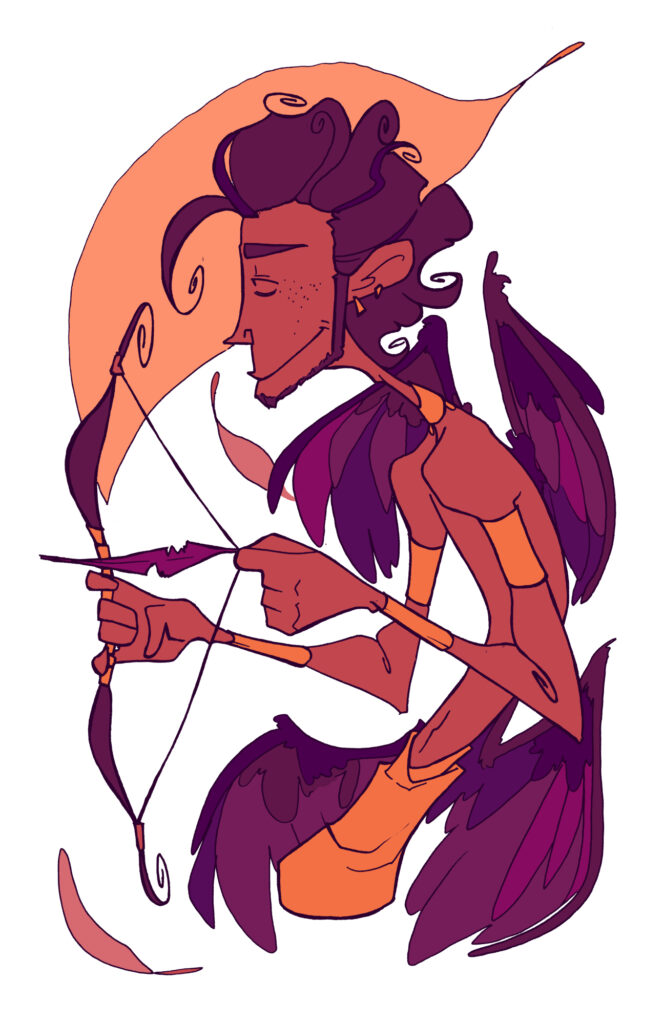
eros
(EROS)
God of love and attraction.
In some versions of the myth he was the sort of God who evolved a lot throughout time. Love and lust were a constant obsession to mortals, so he started off as one of the great initial primordial Gods birthed from Khaos themself. Later on, however, he was considered the offspring of Aphrodite with Ares or Hermes it was unclear. In some cases it was also said that Eros had been demoted further as some sort of cherub even.
All this aside, Eros played a particularly large role in a particular myth where he fell in love with a mortal heroine known as Psykhe. He stole her away and made love to her in the darkness for she could not look upon him in his god-like state. Psykhe grew too curious for her own good and Eros fled to his mother, Aphrodite who set Psykhe to three tasks to win back the hand of her son.
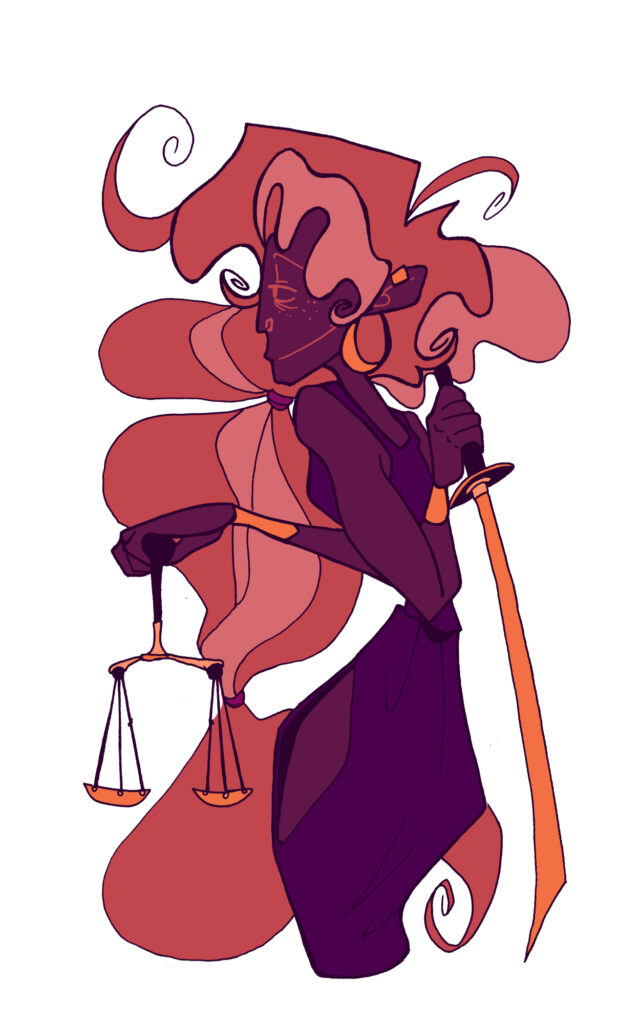
nemesis
(NEMESIS/RHAMNOUSIA/RHAMNUSIA/ADRESTEIA/ADRESTIA)
Primordial goddess of vengeance and retribution.
In some versions of the myth, Nemesis was known as the goddess of retribution. Her punishments were dolled out either at the request of other gods and/or mortals or, in many cases, at her very own hands. Typically, Nemesis was rather fond of cutting down both gods and men too hubristic in nature so that their hubris payed the price of their life, those they loved or simply made them far more humble in nature.
Nemesis was especially known to have done this to the hunter, Narcissus, using his own beauty that which attracted everyone else and who he refused any and all advances, to trap him, staring at his own reflection.
The goddess was also known for being the mother of Helen (of Troy) and her twin, Clytemnestra as well as Castor and Pollux. Although this particular myth confuses Nemesis with Leda in several different ways.
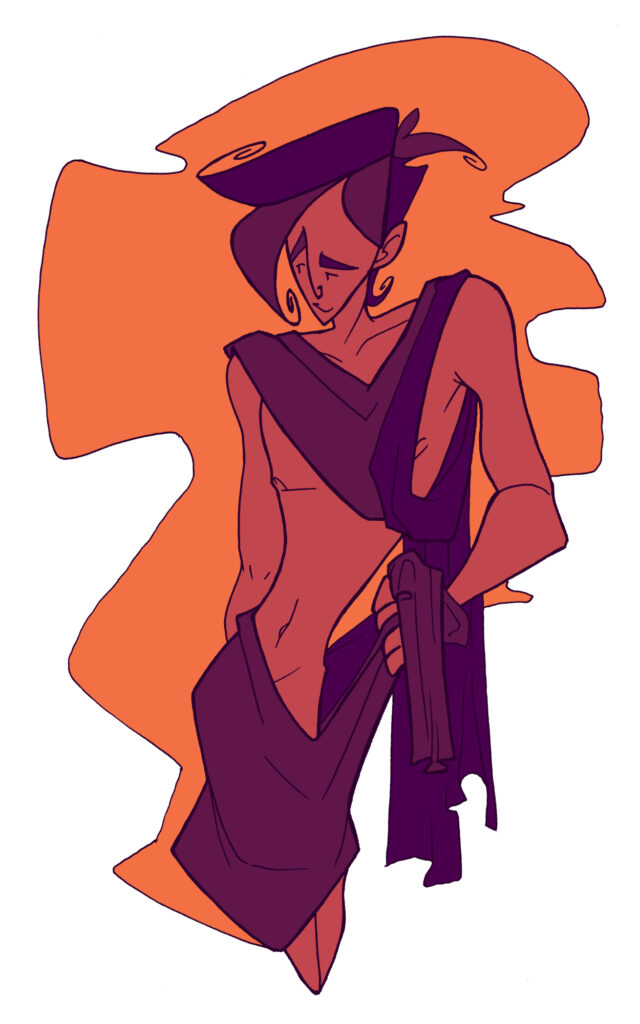
phanes
(PHANES/PROTOGONUS/ERICAPAEUS/METIS)
Primordial deity of procreation.
In some versions of the myth Phanes was the primordial god said to have emerged from the cosmic egg and, following this, have been responsible for creating the rest of the gods. Phanes was referred to in both stereotypical genders though often they were referred to as ‘he’.
Often Phanes was equated (or confused with) Eros and it was even insinuated that Phanes was merely and earlier version of Eros. It would seem that this particular comparison might have influenced the evolution of Phanes into a minor deity surrounding Aphrodite.
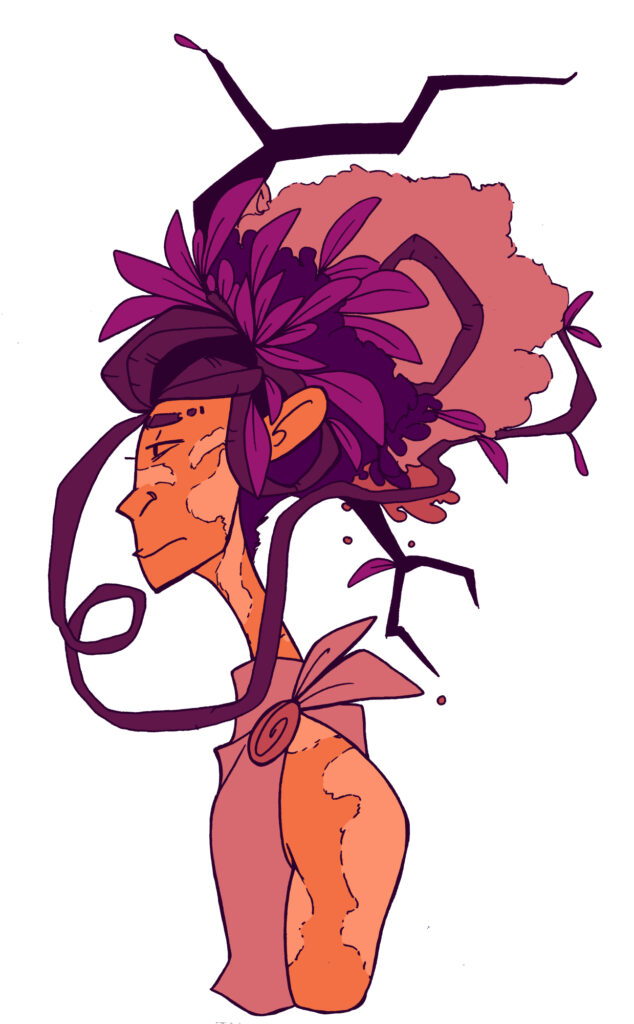
physis
(PHYSIS/PHUSIS/PROTOGENEIA)
Primordial deity of the ordering and origin of nature.
In some versions of the myth, they weren’t a particularly popularly known deity but they were important enough to mention. Although often Physis was considered the ancient equivalent of ‘Mother Nature’ they were also known as both male and female (primarily addressed as female or ‘she’). The idea that Physis was considered to have or continued to be referred to as ‘both genders’ was an interesting concept that played very well in their role within nature. They were a creation deity said to have come from Khaos at the dawn of time.
Often Physis is also equated to Thesis and Phanes, making the three rather interchangeable and/or very often mistaken for one another.
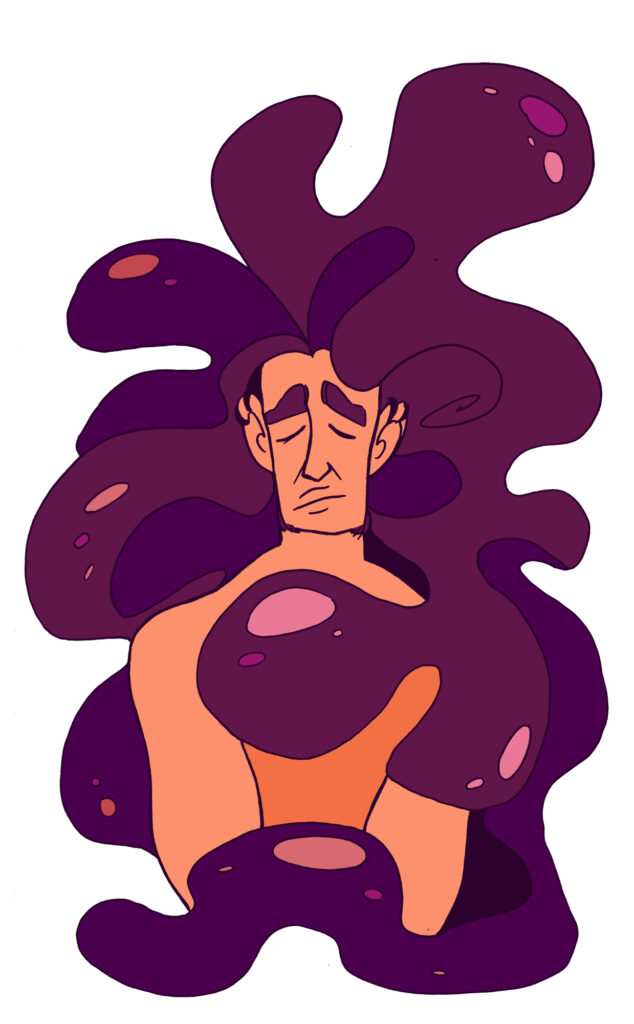
hydros
(HYDROS)
Primordial god of the primordial waters.
In some versions of the myth, Hydros was the very first God of the water. While he wasn’t a very well known deity he was considered a very large part of the initial myth of creation in which Khaos birthed Thesis and Hydros. Together they created mud which hardened and then became Gaia. Both Gaia and Hydros created Khronos and Ananke. The myth follows on into Khronos and Ananke creating the world egg, hatching Phanes and so on.
Essentially, Hydros was the very first of the various gods of the seas, oceans, lakes, rivers and any minor body of water.
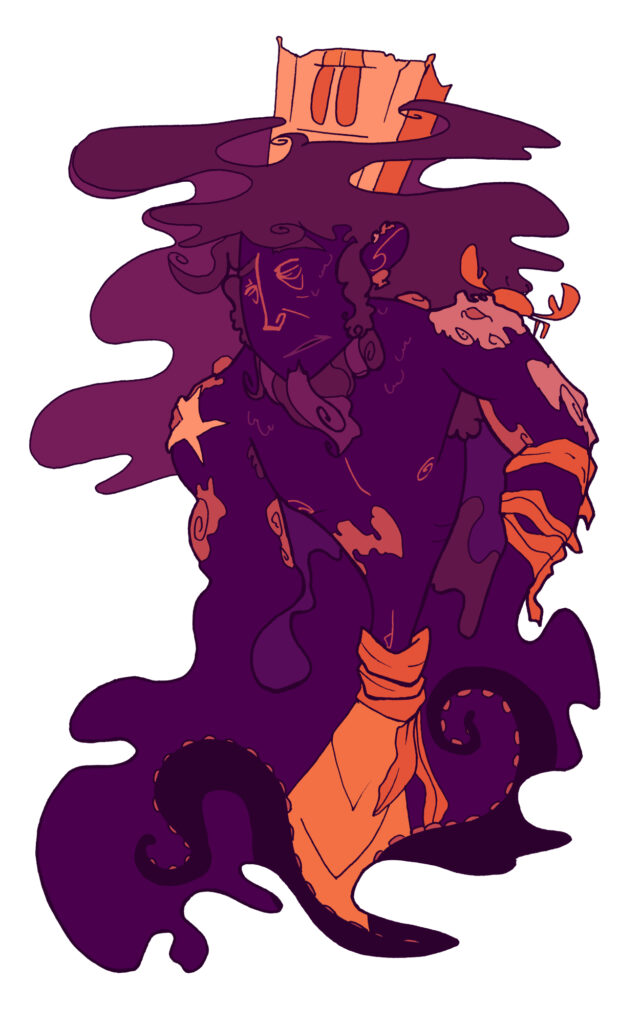
pontos
(PONTOS/PONTUS)
Primordial god of the sea father of all the fish and sea creatures.
In some versions of the myth it was said that Pontos was born from Gaia with no father (later myth fixed this Aether having been his father). Pontos was much more a deity that personified the sea and parented various other sea-related deities such as: Phorkys, Keto and Eurybia. Admittedly he created these children through impassioned love with his mother Gaia, however in later myth it was said that he created his offspring with his wife, Thalassa who was, insanely enough, neither his sister nor his mother, nor of any relation to him whatsoever.
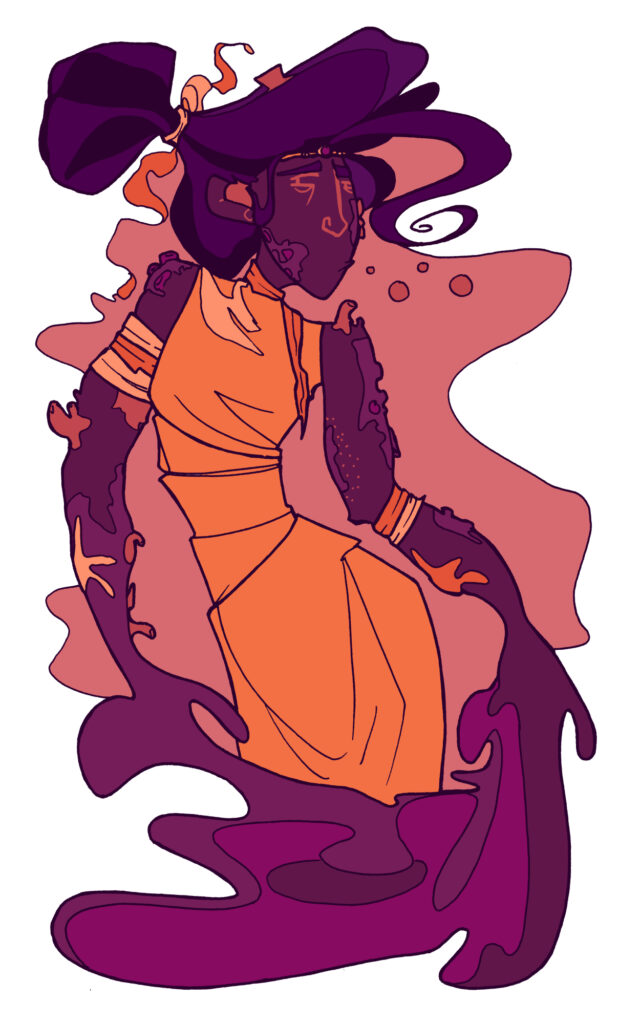
thalassa
(THALASSA/THALATTA)
Primordial goddess and personification of the sea itself.
In some versions of the myth she was a deity who dated back even before Greek Mythology had ever come to be. Part of another ancient civilization’s culture, Thalassa was a concept quickly adopted by the Greeks and was re-introduced as the wife of Pontos. After Thalassa was introduced, she quickly replaced Pontos as the personification of the sea itself as Pontos regained a smidgen more importance as a proper deity.
Unfortunately for them, Pontos and Thalassa were later replaced with Okeanos and Tethys. The usurping of deities from one generation to the next was unfortunately something quite common and occurred with various primordial deities.
MAIN PAGE | TITANS | GODS | HEROES | LADIES | LOVERS | MONSTERS